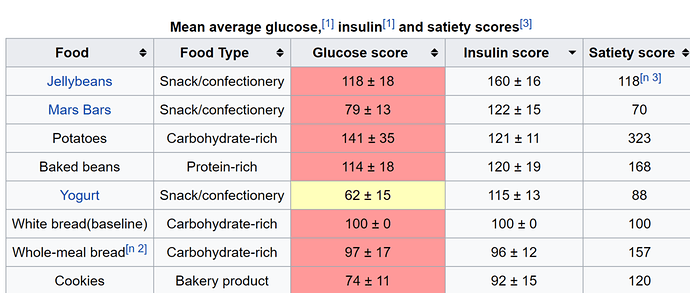I’m not sure which forum category to put this into, but I’m still a keto newbie so I’ll put it here. Moderators, feel free to move it elsewhere if there’s a better fit!
I listened to a ketogenic podcast in which Dr. Jason Fung, who seems to be highly respected in some ketogenic circles due in part to his work on fasting, mentioned that the insulin index is more important than eating very low carb/high fat. (Here’s a blog post authored by him that expands more on this idea: https://intensivedietarymanagement.com/insulin-index/)
I looked up the insulin index and found a list here: https://en.wikipedia.org/wiki/Insulin_index
To my surprise, things like bran cereal, porridge, and brown pasta are lower on the insulin index than beef, fish, or cheese. (!) Apples have the same score as fish; oranges are just one point higher.
I’m not looking for an alternative to the ketogenic diet, which I’m starting to get the hang of after many n=1 experiments, but I also wanted to make sure I’m not cutting out foods I don’t need to.
Does anyone know anything about this or have experience trying out some of the less keto-traditional, low-insulin-index foods while on a ketogenic diet?
Tiffany




